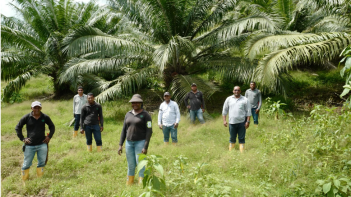The “RSPO-endorsed Lead Auditor Course” will be held on the 23rd – 27th April 2012 in Kuala Lumpur, Malaysia. The course is suitable for auditors, practitioners, plantation managers, and anyone with an interest and background in the RSPO Principles & Criteria. The course syllabus is derived from actual practical working experience in Southeast Asia, Africa and South America. This provides participants with valuable practical insights into the use and understanding of the RSPO standards and a deeper knowledge of the key social and environmental issues facing the oil palm industry today. Conducted by tutors from ProForest and Wild Asia with international field experience, this course aims to provide practical guidance in addressing the most challenging requirements of the RSPO Principles & Criteria, and to incorporate examples from National Interpretations and case studies. The course will look into the RSPO Certification Systems and requirements to ensure consistent and appropriate decision making in audit practise. Since 2009, previous courses were held in Bogor, Indonesia and Kuala Lumpur, Malaysia and attended by participants working in the palm oil industry in Indonesia, Malaysia, Thailand, Nigeria, Ghana, Papua New Guinea, Singapore, Japan and Europe.
(For more information or to download registration form and course outline, visit http://oilpalm.wildasia.org/606/announcement-april-2012-rspo-lead-auditors-training-course-2/ )
Keep reading

Access into prisma

Updated Trace Function in prisma

Call for Expression of Interest: Independent Investigation of a Complaint

Latin American Smallholders, Key Global Brands Gather in Peruvian Amazon to Advance Sustainable Palm Oil

RSPO Forum for Members and Certification Bodies 2025: Strengthening Capacities and Building Bridges with RSPO Members

From Violence to Prosperity: Cultivating Sustainable Palm Oil in San Pablo, Colombia

Palmas de Tumaco: Enduring, Trusting, and Transforming in Colombia’s Pacific Coast
Carry Over Credits for Certified Independent Smallholder Groups




